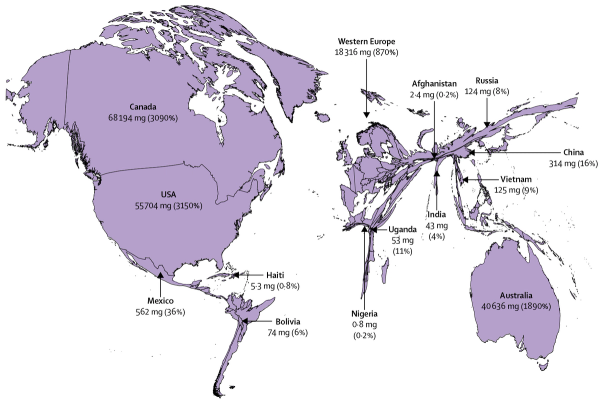Alleviating the access abyss in palliative care and pain relief - An imperative of universal health coverage
By The Lancet Commission
Poor people in all parts of the world live and die with little or no palliative care or pain relief. Staring into this access abyss, one sees the depth of extreme suffering in the cruel face of poverty and inequity.
The abyss is broad and deep, mirroring relative and absolute health and social deprivation. Of the 298·5 metric tonnes of morphine-equivalent opioids distributed in the world per year (average distribution in 2010–13), only 0·1 metric tonne is distributed to low-income countries.1 The amount of morphine-equivalent opioids distributed in Haiti is 5 mg per patient in need of palliative care per year, which means that more than 99% of need goes unmet. By contrast, the annual distribution of morphine is 55000 mg per patient in need of palliative care in the USA and more than 68000 mg per patient in need of palliative care in Canada—much more than is needed to meet all palliative care and other medical needs for opioids on the basis of estimates of the Commission (figure 1).
Click here for the full report (restricted access).
